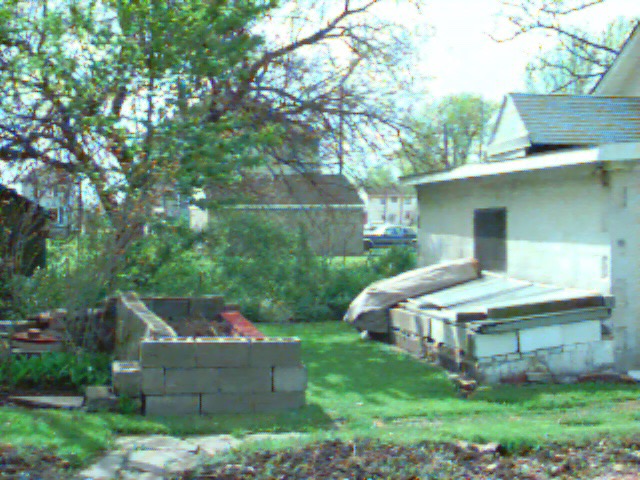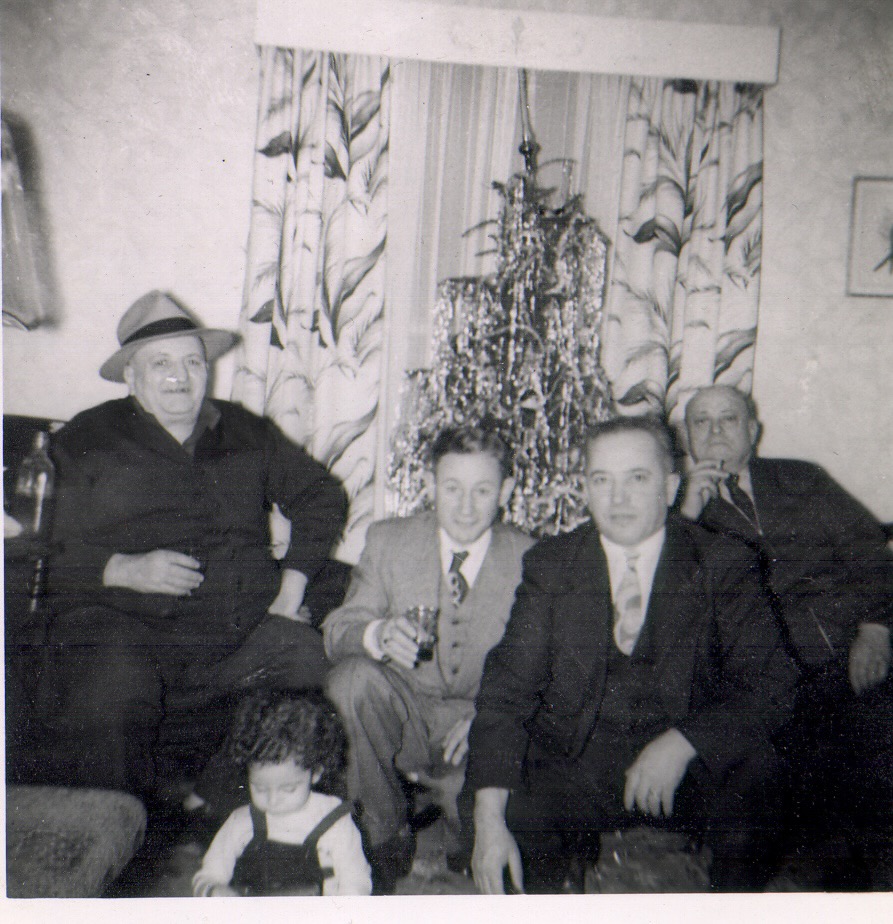The Garden

I must have drafted this in 1985 or 1986 in one fast pass but never published it. It's not my best writing, but it connects me with a moment that I find myself reaching for sometimes when I'm feeling lost.
The Grandfather was not an extraordinary man in world affairs. Neither preacher nor politician, he lived unknown to most of the planet, which suited him just fine.
He had his family - the Grandmother, two sons, three grandsons, and the seeming hundreds of friends who would stop by to visit in the course of any given week. He had his job, his pharmacy. He was a superb tenor at the Catholic church two blocks from the family home, a small two-story former farmhouse on the border of a four-block neighborhood in the little factory town where Italian immigrants like his parents settled and raised families.
And he had the Garden.
The garden. To this man’s eight-year-old grandson, the garden seemed to stretch for acres in all directions. The boy had even said as much to his class in the first grade. It was really only about a hundred feet by fifty, but the boy knew that was just as good.
A wall of knotted shrubbery - taller than the top of the boy’s head - surrounded it on all sides. Just past the last row of tenderly-turned dirt, on the other side of the hand-laid slate sidewalk, built against the garage, sat the low hotbeds topped with old windows, in which seeds were nurtured into seedlings, and then into small plants sturdy enough to hold their own against the garden’s vital but sometimes overpowering elements - the late spring cold, the wind, the rain, and the sun.
Behind the hotbeds, a small stand of trees guarded piles of cut wood, a broken bench, and a few carefully-selected pieces of miscellaneous junk. This was the grandfather’s pile of things too-good to throw away for which he simply hadn’t yet found a need. Behind the trees, away from the hotbeds and the garage, was the ash pile where stray weeds and genuine scraps were torched and sent flying toward Heaven.
At the front of the garden, behind the house, was the little red building he called “the shed”. But this was no rusty, commercial metal shed with a broken door on flimsy hinges. The shed had been handmade a generation before from sturdy wood - a handsome building that had skewed slightly to the left over time.
The shed had two rooms.
The back room contained the gardening tools: the deep wheelbarrow in which the eight-year-old grandson and his younger brother shared rides, taking turns pushing. The hoes and rakes the grandkids needed when they played “garden” under the apple trees next to the real garden. An exquisitely old oil can that reminded the eight-year-old of the one he’d seen in The Wizard of Oz. Grandfather had let the elder grandson oil the wheelbarrow once, twice, a thousand times. It always reminded him of Dorothy giving life to the tin woodsman. The grandfather’s wheelbarrow smelled of oil, and summer. Its wheel never squeaked.
The back room smelled sweetly of tomatoes ripening on the windowsill in late summer. It breathed life into the garden through seeds packaged and tucked away after each season on its highest shelves. The back room fell silent in wintertime. It lived and died along with the garden.
The front room was always alive. It was the grandfather’s room, crowded with mementoes of known and unknown origin. A world map, drawn by one of his sons in high school, had survived two decades in its place above the door. On the wall, an ancient gas station thermometer that was still accurate. More boxes of nails and screws than anyone could ever need, sorted by size and purpose. And the “little stove” - a potbellied, cast-iron stove that warmed the small room from November to March. Around its chimney hung peppers, strung together to dry through the winter.
The smell of the front room was all peppers and old things and the comfortable closeness of a tiny chamber and a deep infusion of smoke from old newspapers and bits of hardwood that had crackled as it burned in the stove, thowing red sparks around the pot belly, their ash taking flight up the chimney, also toward Heaven.
When the snow clouds rolled back each spring and the sun uncovered the remnants of the previous gardening season, as soon as the ground was unfrozen and could be worked, a relative or friend or hired helper with a gas tiller would come and turn the rotted plant stalks back into the earth. In this way they were the foundation of the garden to come. The old garden was never forgotten and it was not lost: it became an integral part of the one which followed and everything that would grow in it.
It took all that to make the Garden work: The shed, the ash-pile, the hotbeds, the wheelbarrow, the tiller. But that was not enough. The garden needed tending. And that was the job of the Grandfather, who brought the garden to life, gave it a soul through his hands: planting, watering, weeding, walking the rows, tying the tomatoes to stakes as they grew from seedlings to productive plants.
The grandsons would watch in spring as their grandfather carefully transplanted the tomatoes and peppers from the hotbeds into the fertile soil. From spring to summer they saw the brown-black soil mature into a red-green jungle. And on hot, dry summer evenings, after the sun had dropped low and their grandfather had weeded and watered, they got to run to the house to shut off the hose when he was through.
And near summer's end, they knew the days would grow shorter and school would start soon when the Grandfather came to their house weekly, even daily, with bushels of tomatoes and beans and peppers in the back seat of his old Buick, to be eaten now or canned to sustain them through the coming winter as they awaited the Garden’s next season.

In the story, I am the eight-year-old boy. The grandfather was my grandfather.
In the photo above, he's the young guy in a gray suit and tie in the center. This is dedicated to him, and to my grandmother, and great-grandparents, who all gave life to the Garden and the magic it created in my little-boy world.